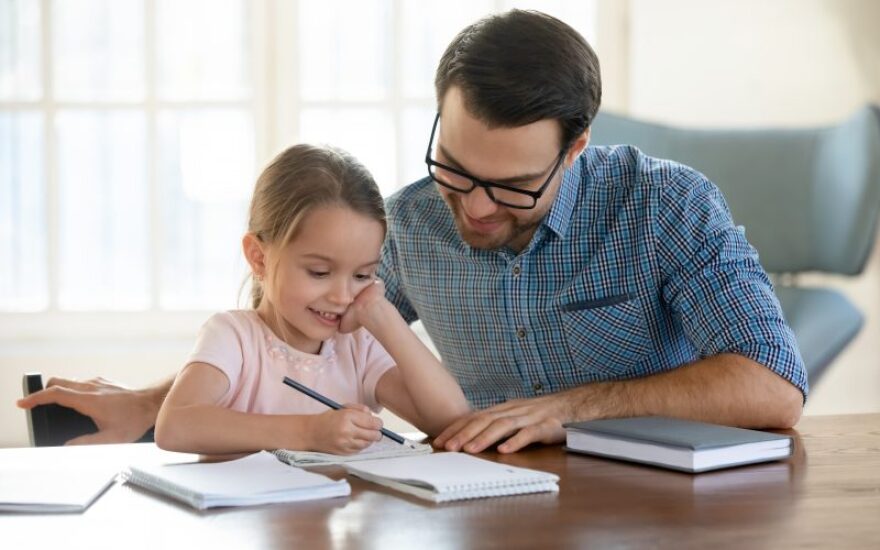When the coronavirus began to spread in the U.S., one of the most obvious changes was the closure of schools and daycares.
For many parents, it has upended their schedules. While working from home, they’ve stepped in as teachers to help their children finish math assignments and attend virtual Zoom classes. It's clear taking care of a child in the middle of a public health crisis has come with new challenges.
KERA Think guest host Courtney Collins spoke with Washington Post parenting columnist Meghan Leahy about the power of a parent’s apology and how social distancing affects every child differently.
Transcript
This transcript has been lightly edited for clarity.
Courtney Collins: Can you explain why you think a good apology is such a powerful parenting tool?
Meghan Leahy: I think we'll have some good days and some bad days, but I think we can get through it if we can, as the adults, as the parents, be vulnerable enough to give honest apologies. What that does is number one, most important thing it does is it frees us, the adults, from the burden of being perfect, of carrying guilt and shame, of carrying anger or remorse.
Like it's a little reboot, right? It also powerfully models for our kids our humanity and how they can accept an apology and also give one, right? So I mean, not to put too fine a point on it, but I think we could like literally save the world if people just learned how to apologize to each other.
Collins: It's interesting ‘cause kids, I don't know if they always expect you to tell them that you were wrong.
Leahy: And I really feel for parents because a lot of us didn't grow up being apologized to. My mother and I would duke it out often when I was growing up. I was a tough teen, but she always apologized to me and I credit her for that because, you know, if you talk to a lot of people that was just not done.
The parents might have felt bad, but they never simply said sorry. Sorry, I lost my cool. Sorry, I made a mistake. Sorry, I was upset about something else and I yelled at you. So in many ways, parents have to, it's like learning a new language or new dialect of your language. It's uncomfortable.
Collins: I've read that all the social distancing we've been doing since March has been really bad for some kids and really good for others. Let's start with the bad. Why might this be so hard on some children?
Leahy: Well, like some adults, temperamentally speaking, some kids really energetically, just jam by being with other kids. They like the rough and tumble. They like the laughter, they like to go. And almost every kid likes to play. How they like to play may differ.
And the social aspect of teams, which is amazing or musical theater or being in a band, or even just connecting one-on-one with your body on the street, just, you know, going around the neighborhood. This is where kids kind of learn some tough lessons and that's all been taken away and they're stuck with their mother and father or just, you know, one parent or just another caregiver. It's boring.
Collins: Can you explain why the situation may cause some children to thrive right now?
Leahy: Some kids really love a more open schedule, less routine. They don't want to be driven around from place to place to place. And they're thriving. Well, we're realizing that traditional school may not work for a whole bunch of kids. And if that's your case, that's great. Don't feel bad about it.







